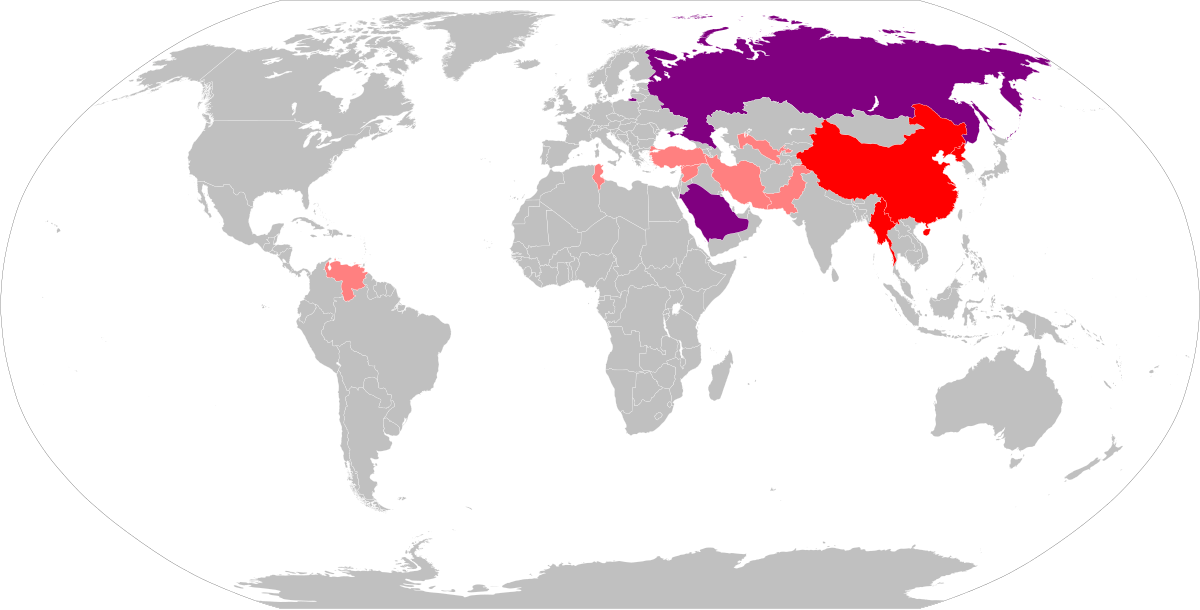Censorship of Wikipedia by governments has occurred widely in countries including (but not limited to) China, Iran, Myanmar, Pakistan, Russia, Saudi Arabia, Syria, Tunisia, Turkey, Uzbekistan, and Venezuela. Some instances are examples of widespread Internet censorship in general that includes Wikipedia content. Others are indicative of measures to prevent the viewing of specific content deemed offensive. The duration of different blocks has varied from hours to years.



Doesn’t count politicians trying to rewrite their own pages to remove proof of things they did I guess
No. And the fact you think it does means you have no idea what it is to live in a dictatorship.
Or it means that I’m sick of people letting “democracies” slowly turn into dictatorships because “we’re not north korea so don’t complain”.
Governments using their employees (=> taxpayer money) to try to alter information on media that should be independent sounds a lot like censorship.
Sure, there is much worse, but it doesn’t mean that everything is fine.
Someone editing a Wikipedia page is exactly the same as not being able to say something under the penalty of torture or death /s
Dude count yourself lucky that the worst thing that happened to you or anyone you know is a politician telling an intern to vandalize Wikipedia.
https://en.wikipedia.org/wiki/List_of_people_imprisoned_for_editing_Wikipedia
That’s a tiny bit different from vandalizing a Wikipedia page.
Please quote where I said that it’s the same.
I love how when it comes to subjects like that the only argument is “it’s worse elsewhere so stop caring”.
Caring about such a “small thing” (is it, even?) is how you don’t end up switching from the first half of your example to the second half.
A lone politician doing dumb shit on the internet has nothing to do with state sponsored censorship, let alone a drift towards a dictatorship. This is a moronic take.
When the politician is part of the government, it is the government’s responsibility.
And considering that most democracies are currently seeing a clear shift towards fascism, they do drift towards dictatorships.
Saying it’s it’s moronic doesn’t make your argument smarter.
No, it is not. Unless the candidate brought forth a resolution to officially change the article by the government itself. Editing Wikipedia articles is not illegal so I’m not sure what you expect the government to do here. Making it illegal is certainly the move of a dictatorship though.
Thanks for further proving my point.
You’re not talking about governments but about laws. People in the government engage the responsibility of the government.
I’m talking about policy, which is how governments work. A lone politician editing a wikipedia article is not the work of the government.
So according to you, if members of the government agree to do something illegal or at least that shouldn’t be allowed, without anything opposing them and let’s say, the president covering for them, this is not the responsibility of the government because it’s not a policy?
Going further, if all the government agrees to do something unofficially, without writing it down as a policy, then it is not the responsibility of the government.
So basically they can do anything they want, as long as it’s not official, and it will never change the status of democracy of the government. A country like Turkiye then would be a perfect democracy since all their dictatorship-like actions tend to stay supposedly unofficial.